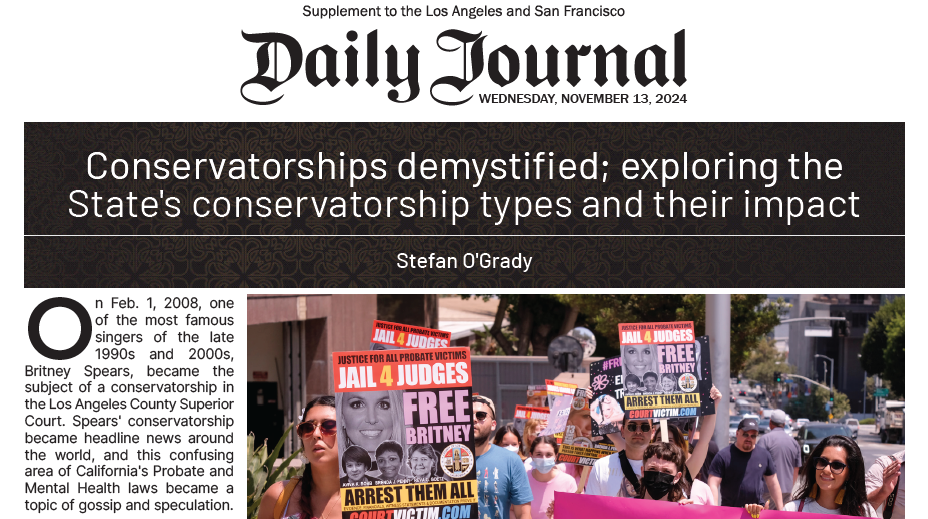Is an elderly loved one displaying concerning behavior?
Are they failing to adequately take care of themselves?
Do they have unpaid bills despite having the resources to pay what they owe?
Are they susceptible to the influence of others?
If the answer to any of these questions is yes, it’s possible your loved one is showing signs of diminished mental capacity.
While forgetting to take medication or pay a bill every now and then is normal, you should worry if these minor lapses become a repeating pattern. For example, if your loved one has ended up in the hospital multiple times because they failed to take their medications as prescribed, this is a sign of incompetence in elderly persons, and you may need to take action to protect them.
Many people feel guilty for seeking information surrounding how to declare someone mentally incompetent, but they shouldn’t because they may be doing their loved one a favor. While having someone declared mentally incompetent can strip them of many of their rights, it often is necessary in order to keep them safe from personal and financial harm.
If you believe a loved one is of unsound mind or has diminished mental capacity, consulting with a probate attorney about your options is an ideal first step. Broaching a sensitive topic like mental incapacity with the person whom you suspect to be incapacitated could be difficult, but with an attorney by your side to guide you, you’ll be prepared to handle any obstacles that arise.

What Is Mental Capacity?
To grasp what it means to be mentally incapacitated, or mentally incompetent, you first have to understand what it means to have mental capacity.
In simple terms, mental capacity is the ability of a person to make sound decisions and satisfactorily manage their affairs. It is a prerequisite for many important decisions, including signing a contract, executing a will or trust, and providing consent for a medical procedure.
Does a person lack mental capacity if they squander their money on useless items? Not necessarily. If they are aware of the consequences of squandering their money, they likely have capacity. On the other hand, if the person has repeatedly fallen victim to scams, resulting in hundreds of thousands of dollars or more being stolen from them, a lack of mental capacity is possible.
In the next section, we go over some of the specific factors that indicate a person has mental capacity.
What Does It Mean to Have Mental Capacity to Sign Legal Documents?
The most important decisions of a person’s life (e.g., marriage, purchasing a home, executing a will or trust) almost always will require them to sign legal contracts.
It is necessary for people to have mental capacity when signing legal contracts because it’s possible they’ll be bound to that contract forever, and if not, the contract could have far-reaching effects that not only could affect the person who signed it, but others as well.
For example, when a person signs a will, the document won’t take effect until after they die, so it could have a profound impact on the lives of their loved ones, whether they were included or excluded from it.
Conversely, if a person who lacked mental capacity was unduly influenced to execute a will, it could place their loved ones in a tough situation after their death, as they may need to contest the will on the basis of the will creator (called the testator) having lacked the mental capacity to sign the legal contract.
In the world of probate, the level of capacity needed to make a decision depends, in part, on how complex the decision is — complex decisions require a greater level of understanding, while simple decisions generally require less.
Testamentary Capacity
Testamentary capacity refers to the level of capacity a testator needs to make or sign a simple will. The legal standard for testamentary capacity is not as rigid as the legal standard for contractual capacity, which we will discuss in the next section.
According to California Probate Code section 6100.5, a person lacks the mental competence to make a will, if, at the time they are making the will, either of the following is true:
“(1) The individual does not have sufficient mental capacity to be able to do any of the following:
- Understand the nature of the testamentary act.
- Understand and recollect the nature and situation of the individual’s property.
- Remember and understand the individual’s relations to living descendants, spouse, and parents, and those whose interests are affected by the will.
(2) The individual suffers from a mental health disorder with symptoms including delusions or hallucinations, which delusions or hallucinations result in the individual’s devising property in a way that, except for the existence of the delusions or hallucinations, the individual would not have done.”
Contractual Capacity
Contractual capacity refers to the level of capacity someone needs to make or sign complex legal documents, such as trusts, powers of attorney and deeds. As previously mentioned, the legal standard for contractual capacity is more rigid than that of testamentary capacity.
According to California Probate Code section 812, a person lacks the mental competence to make a decision related to a contract if they do not meet the legal standard for testamentary capacity, and unless they have the ability to communicate verbally, or through other means, and understand all off the following:
“(a) The rights, duties, and responsibilities created by, or affected by the decision.
(b) The probable consequences for the decision-maker and, where appropriate, the persons affected by the decision.
(c) The significant risks, benefits, and reasonable alternatives involved in the decision.”
What Is Mental Incompetence?
The definition of mental incompetence is not complicated. A person who is mentally incompetent lacks the capacity to adequately manage their own personal and/or financial affairs.
Some people are forgetful or are prone to making bad decisions, but that doesn’t mean they are mentally incompetent. If a person is able to navigate life independently and protect themselves and their finances from harm, their forgetfulness and bad decisions likely aren’t caused by a lack of capacity. However, if their memory issues are so significant that it impairs their ability to understand a decision they are making, they may be incompetent.
Mental incompetence also can be transitory. For example, a person could be under the influence of a mind-altering substance when signing a legal contract, but be fully competent off the substance. If a contract were signed by that person while they were under the influence, and this can be proven, the contract potentially could be invalidated.
While anyone could be mentally incompetent or start to lose capacity, mental incompetency tends to affect elders the most. Old age can cause a decline in mental competence, as can cognitive disorders like dementia, which plague elderly populations far more than younger ones.
Why Might It Be Necessary to Have Someone Declared Mentally Incompetent?
Without an official determination of mental incompetence, a person’s loved ones will be restricted in the actions they can take to protect them and their finances. For example, they will not be able to obtain a conservatorship over the person.
Additionally, there are some estate planning documents, such as springing powers of attorney and Advance Health Care Directives, that cannot take effect until an official determination of mental incapacity is made.
What Is the Criteria for Being Declared Mentally Incompetent?
What makes a person incompetent? Can a doctor declare someone incompetent?
In California, doctors, specifically a person’s treating physicians, are the ones to declare a person mentally incompetent. If a dispute were to arise surrounding the doctor’s determination, then the court may step in to review the facts and make a final ruling surrounding the matter.
There are certain cognitive conditions and/or health issues that can cause a person to become mentally incompetent. In some instances, a person could be diagnosed with a cognitive condition that is not affecting their mental competence now, but is likely to affect it in the future.
If you are someone whose mental competence has not yet declined but could in the future due to a cognitive condition you have, it is essential you consult with an estate planning attorney. You may be able to execute a power of attorney, which would enable a party of your choosing to make decisions on your behalf should your mental capacity eventually decline.
That said, if a loved one has a condition or health issue that is causing them to display signs of mental incompetence, it is crucial you investigate the matter further and potentially even get an attorney involved.
Cognitive conditions and health issues that can cause mental incompetence include:
- Cognitive Disorders (e.g., dementia, Alzheimer’s)
- Developmental disabilities (e.g., autism or Down syndrome) Serious substance abuse issues (e.g., alcoholism, opioid abuse)
- Serious mental illness (e.g., schizophrenia, psychosis)
If a loved one is experiencing any of the conditions or health issues mentioned above, be sure to promptly call an attorney to discuss what you can do to protect them and their finances.
What Are Some Signs of Mental Incompetence?
Certain conditions and health issues linked to mental incompetence are more obvious than others — which is why it’s important to be on the lookout for signs of mental incompetence if you’re concerned about the decision-making capabilities of an elderly or incapacitated loved one.
Signs of mental incompetence include:
- Confusion, inability to concentrate or disorientation (e.g., inability to complete routine tasks)
- Substantial memory impairment
- Information processing disorders (e.g., inability to recognize familiar people or objects)
- Inability to understand and appreciate quantities or reason logically
- Disorganized thinking or hallucinations
- Substance misuse (e.g., alcoholism, drug use)
Remember that everyone is different. A finding of incapacity requires that the person not only suffer from one or more of the above conditions, but that the condition impairs the person’s ability to make decisions.
Case Studies: Mental Incapacity Examples
Many of the cases our firm handles involve mental incapacity. Read about some of our most notable case studies involving mental incapacity below to learn how we proved mental incapacity and secured favorable results for our clients.
While reading these case studies, consider how the outcomes of these situations might have turned out differently if the person in question’s lack of mental capacity had been discovered early and legal action had been taken to appoint a conservator.
Financial Abusers Duped Retired Doctor With Mental Illness out of Millions of Dollars
When people see another person struggling, their instinct generally would be to help them. But in this case, a couple bad actors ran into a man who was suffering from serious mental illness and saw an opportunity to financially exploit him.
The financial abuse perpetrated by these bad actors was extreme, but it wasn’t discovered until after their victim died and estate administration was taking place. It came to light that these abusers had stolen millions of dollars from the decedent, as well as many of his assets.
These financial abusers seemingly had been willing to do anything to get their way with the decedent, including drugging him. At one point, one of the abusers even convinced the decedent to sign a power of attorney under false pretenses, which gave him access to all of the decedent’s medical records and financial accounts. The abuser used this information to siphon money from the decedent.
Even though the decedent in this case previously had been a successful doctor, his battle with mental illness was starting to diminish his mental capacity, which made it difficult for him to protect himself from the influence of his abusers.
In the end, Keystone was able to help recover $2 million in stolen assets from the decedent’s financial abusers and secure an additional $1 million in damages.
Read the full case study here.
Caregiver Stole Heir’s Inheritance by Manipulating Incapacitated Decedent’s Estate Planning Documents
A caregiver’s only job is to provide medical support to their patient and tend to their personal needs. But in this case, a caregiver took it upon herself to draft and execute estate planning documents on behalf of her patient, which resulted in the patient’s only heir not receiving anything from the decedent’s estate after his death.
This heir came to Keystone for help years after finding out about the caregiver’s actions. As the decedent’s only heir, he should’ve received copies of the decedent’s estate planning documents, been kept informed about administration, and provided estate and trust accountings. Unfortunately, the caregiver, who mysteriously had been appointed to oversee both the decedent’s estate and trust, failed to carry out her duties as executor and trustee.
Worse still was the fact the caregiver had used a questionable power of attorney to designate herself as the sole beneficiary and trustee of the decedent’s trust, which allowed her to transfer the decedent’s home, his most valuable asset, into her name. Additionally, she drafted the decedent’s will, which left the entirety of his estate to her and her two children, in her own handwriting and signed it with an “X.”
Being that this heir came to Keystone not immediately following his brother’s death, but years after it, by which time the deadline for contesting a trust or will had already elapsed, Keystone’s options for recovering the property the caregiver had stolen were limited. Nevertheless, we managed to secure for our client a favorable settlement consisting of the majority of the decedent’s liquid assets, as well as an additional settlement sum paid by the caregiver directly.
Read the full case study here.
Father’s Lack of Capacity Places Family Business at Risk
Family members may have a little more patience when facing issues with one another than they would have with outside parties, but if problematic family members push buttons too much, like the incapacitated 96-year-old father in this case did, repercussions are likely.
Our client had been one of the father’s daughters, and for most of her life, she had been helping her father run a limited liability company (LLC) that was owned by his trust. She was concerned about the trust because she stood to inherit the majority of trust assets as the trust’s primary beneficiary once her father died.
While she was co-trustee of the trust along with her father, he wielded more control over the trust than she did, since he was the only surviving trust creator (known as a settlor, grantor or trustor). She, however, was starting to feel her father lacked the mental competence to have so much power over the trust and family business.
What was concerning to her was her father’s desire to sell the trust’s most valuable asset — a commercial income-producing property owned by the LLC — for significantly less than what it was worth. Her father had always approached business matters with care, so this decision was out of character for him. The only reason she could come up with for why he would make such a financially unwise decision was that his capacity was starting to diminish.
The father was not happy with his daughter pushing back and doubled down on his decision to sell the property due to spite. Our client, however, persisted with her plan to try to have her father removed as co-trustee for lack of capacity.
A messy and prolonged legal fight ensued between the father and daughter, but in the end, Keystone helped the daughter come out ahead. The settlement that was reached allowed our client to become the sole owner of the LLC after buying out her sister’s and father’s shares of the company. Now, our client owns the LLC’s income-producing property whose value exceeds the amount of her potential future inheritance.
Read the full case study here.

What Happens When Someone Is Declared Mentally Incompetent?
If someone is declared mentally incompetent by the court, the consequences can vary. It may mean that the incompetent person will no longer able to serve as trustee of their trust, or that a conservator will need to be appointed to manage their personal or financial affairs. A declaration of incompetence also could mean certain documents executed by the incompetent person may need to be set aside.
How to Declare Someone Mentally Incompetent
The most common method of obtaining a court order declaring someone mentally incompetent is by petitioning for the appointment of a conservator.
In the following sections, we go over how to prove mental incapacity and have someone declared mentally incompetent as part of a conservatorship proceeding.
Gather evidence and file a petition for conservatorship.
Only if an incapacitated person does not have a valid power of attorney will this step and the one following it be necessary.
A conservatorship is a court-supervised arrangement that strips an adult of most of their rights, so the court will only grant one if there are no viable alternatives.
In your conservatorship petition, you’ll list the reasons why a conservatorship is needed. You will need to have evidence, such as a declaration from the proposed conservatee’s treating physician, known as a capacity declaration, demonstrating the proposed conservatee’s incompetence. Alternatively, if you have a probate attorney, they can complete this step for you and gather all the evidence you’ll need.
The conservatorship petition also must include specific details about the proposed conservatorship, such as the type of conservatorship you are seeking and whether you wish to be conservator of the person or conservator of the estate. You may even wish to be both.
Attend the conservatorship hearing.
Once a conservatorship petition is filed, a date for the court hearing will be set. Interested parties should be notified of the hearing so they can attend it if they wish to contest the proposed conservatorship.
A contested conservatorship is not ideal because it can prolong litigation, so if you can get the proposed conservatee’s family and friends on the same page as you prior to the court hearing, it could save you time and money, as well as help in getting the proposed conservatee the protection they need as soon as possible.
If you have an attorney, they will be able to present compelling arguments to the court about why conservatorship is needed and respond to any objections that are made to it.
At the conclusion of the hearing, the court will decide whether or not to grant the proposed conservatorship.
FAQs: Mental Incompetence
If you didn’t find the answers you were looking for above, maybe you will find them in our FAQs. Remember that our firm is always available to assist as well. You can call us or fill out a contact form on our site to request a free consultation.
Can you contest a will or trust due to lack of capacity?
A will or trust can be contested on the basis of the testator or settlor having lacked the capacity to execute the document when they did.
Keep in mind that trust and will contests generally must be brought within 120 days of the will being admitted to probate or the date you received a notification by the trustee about administration.
It’s also important to note that only parties with standing can contest a trust or will. Standing means that you have a financial stake in the outcome of the case.
There are also other grounds for contesting a will or trust. If the testator or settlor lacked capacity in addition to being subjected to fraud, for example, your petition to invalidate the will or trust may be strengthened.
To successfully contest a will or trust, it is recommended you work with a probate attorney, who can handle everything from drafting the petition to making oral arguments in court.
What happens if you are declared mentally incompetent without valid reasons?
If you’ve been declared as mentally incompetent or are being subjected to a conservatorship proceeding you feel is unwarranted, you can hire an attorney to try to have the conservator’s appointment reversed.
The court generally will not grant a conservatorship unless it is genuinely needed, since a conservatorship strips an adult of their rights and can be a drain on the court’s resources. In other words, the court is likely to hear you out if you have concerns about the conservatorship being proposed.
Of course, if your treating physician has declared you as mentally incompetent or has documented symptoms that could point to potential incompetence, it could be an uphill battle for you to prove you have mental capacity, but with an experienced attorney by your side, the chances will be greater that your incompetence declaration can be reversed.
How can I have a dementia patient declared incompetent?
Having a dementia patient declared incompetent would require documentation from their treating physician, which likely wouldn’t be very difficult to get if the patient has dementia.
If you would like to have the patient declared incompetent so they can be placed under conservatorship, then you will need to file a conservatorship petition with help from an attorney and attend the conservatorship proceeding to make your case.
Is someone you know showing signs of mental incompetence? Learn what you can do to protect them.
It can be difficult to watch the mental capacity of our loved ones start to diminish, but by searching for information on how to declare someone mentally incompetent, you are doing the right thing.
Mentally incompetent individuals are at risk of harming their health and their finances if legal action is not taken to protect them. Learn what options are available to you by requesting a free consultation with our legal team. We are here to help in any way we can.







